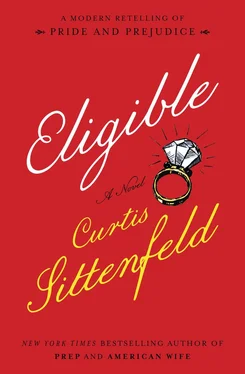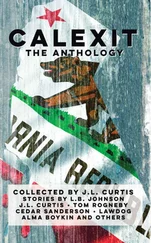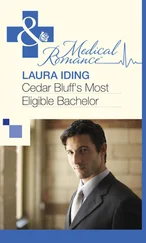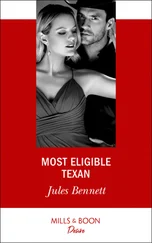As for your accusation that I mistreated Jasper Wick, it’s more difficult to refute because I’m not sure precisely what you think I’ve done. However, I’ll tell you the facts, and if you want corroboration, multiple articles ran at the time in the Stanford newspaper.
I knew Jasper only by name for most of our time on campus and didn’t have an opinion about him. When we were seniors, he took a creative writing class (again, this is all part of the public record) and he turned in a story written from the perspective of a guy in Sigma Alpha Epsilon. I’m sorry to say that because of the charges eventually brought against him, and because I was part of the judicial affairs board, I had the unpleasant experience of reading this story, and I’m confident it was the worst possible version (if there’s any version that’s not bad) of frat-boy lit. Jasper’s crimes against the English language weren’t the reason he got into trouble, though. I wasn’t in the class (I suspect you’ll be neither surprised nor impressed when you hear that the only English course I took in college was to fulfill a requirement), but apparently the discussion of the story was very acrimonious, and the instructor, who was a woman named Tricia Randolph, sided with students who said they found the story offensive.
Ms. Randolph, who had come to Stanford for a two-year writing fellowship, lived in a ground-floor studio in an on-campus graduate student complex. That night, she returned to her apartment to find that a window screen had been removed and there were puddles of urine all over the papers on her desk and the keyboard of her laptop computer. People had seen Jasper loitering outside the building, obviously drunk, and during questioning with campus police, he confessed to being the culprit. It was clearly a case of intentional property damage, and there was question as to whether, because Ms. Randolph was black, it was also a hate crime, though that charge was ultimately dismissed. I always had the impression that Jasper saw urinating on Ms. Randolph’s desk as a silly prank and viewed himself as a victim of rising political correctness, but to me his transgression absolutely had a racial component; whether or not he himself was aware of it, I doubt he’d have been so blatantly disrespectful to a white instructor. Again, though, when the judicial panel voted unanimously to expel him, it was for the property damage charge. Presumably, the sting of expulsion was exacerbated by the fact that it happened a couple weeks before our graduation, thus denying him a college degree, but my take is, if you want to graduate from Stanford, don’t piss on people’s desks. Clearly, you and I have different impressions of Jasper, and I hope this will shed light on why I’m not a fan. It would be nice to think a person can evolve, but I’m not sure I believe it. In any case, to reiterate what I told you yesterday: Whatever the parameters of your relationship with Jasper, you’re much too good for him. And please don’t think that in making such a declaration, I’m suggesting myself as the alternative. Your opinion of me is abundantly clear.
I was tempted to tell you all of this today, but due to the unsettling nature of our conversation, I didn’t trust myself to relate the information in a coherent way. While I’m not even sure you’ll read this letter, I find the misapprehensions you’re under troubling enough that I’m nevertheless moved to try setting them straight.
I wish you luck back in New York.
Best,
Fitzwilliam Darcy
CONTRARY TO DARCY’S speculation, Liz didn’t merely read the letter; she reread it many times and with each round experienced fresh incertitude and distress. His comments about Jane were not particularly convincing. That he believed his own version of events was plausible, but she suspected that his antipathy to her family had contributed more to the part he’d played in disrupting Jane and Chip’s courtship than his doubts about Jane’s enthusiasm for his friend. She was unsurprised to learn that Caroline Bingley also had disapproved of the union.
It was Darcy’s description of Jasper Wick that gave Liz pause. Simultaneously so disturbing and so credible, it matched Jasper’s own account in many ways. And yet, was Liz really such a poor judge of character? Was Jasper not merely flawed but racist and truly reprobate? Just as their relationship had too closely and obviously resembled a cliché for her to believe it was one, Jasper had alluded too frequently to being a jerk for Liz to interpret his allusions as anything except jokes; wouldn’t a true jerk show less self-awareness?
As she’d read the letter for the first time, Liz’s stomach had tightened, and when she took her seat on the plane, she realized that the uncomfortable sensation was one of shame. The proof was plain that both her rudeness to Darcy on nearly every occasion and her faith in Jasper had been wrongly directed. Accompanying her shame was, on Jane’s behalf, a great regret, because it now seemed that misunderstanding rather than lack of affection from either party had been responsible for the collapse of Jane and Chip’s relationship. And yet, with Chip filming in Los Angeles and Jane ever more pregnant in upstate New York, a clarification that could have occurred over coffee in Cincinnati appeared logistically impossible.
That Liz herself had dismissed Darcy’s declaration of love was the one decision she didn’t regret, for she could no sooner have accepted his entreaty than she could have accepted Cousin Willie’s. She and Darcy scarcely knew each other; the entirety of their interactions had been spent either quarreling or having sex and, in one case, on the evening when they’d each wanted the other person to be on top, both. (He had acquiesced.) She wouldn’t deny that she’d had fun with Darcy, of a confined, antagonistic, and peculiar sort, but surely fun could not be the basis of a relationship. Could it?
The plane began to accelerate on the runway, and presently, they had lifted off. From her window seat, Liz watched the buildings and rolling hills shrink beneath her, the Ohio River go motionless, the cars on the highways slow to a crawl before vanishing from view. Cincinnati resembled in this moment a miniature model of the sort an architectural firm might create; it didn’t seem large enough to contain all the events of the past months. She had wondered, she now realized, if she’d make it out or end up staying forever, trapped by obligation and inertia; yet it was the very act of leaving that cast doubt on the desirability of escape. Or maybe it was nothing as symbolic as doubt, she thought as the pilot curved south; maybe all that was being cast was the shadow of her own plane over the dappled green midwestern afternoon.
Time seemed, as it always does in adulthood after a particular stretch has concluded, no matter how ponderous or unpleasant the stretch was to endure, to have passed quickly indeed.
RIDING IN A taxi from Houston’s George Bush Intercontinental Airport to her downtown hotel, Liz called Jane’s cellphone. When her sister answered, Liz blurted out, “Jane, I had sex with Darcy four times, and this morning he came to Kitty and Mary’s apartment and said he’s in love with me.”
“Are you serious?”
“I was in my pajamas and didn’t even have a bra on.”
“What did you tell him?”
“What do you think I told him? He’s crazy.”
Jane was quiet before saying, “Maybe he’s not as bad as we thought, if he recognizes how special you are.”
“Actually, he told me I’m not beautiful, I’m not funny, I’m gossipy, and he can’t stand Mom — this is during his declaration of love. But I still don’t think he could imagine any woman, including me, turning down the chance to be his girlfriend.”
Читать дальше
Конец ознакомительного отрывка
Купить книгу












